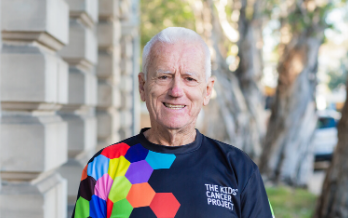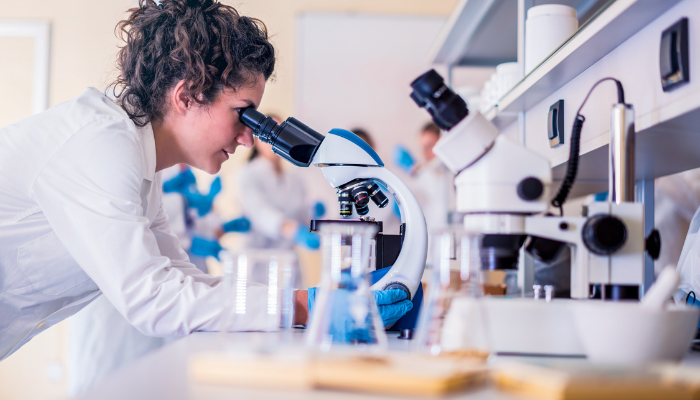Col Reynolds Fellow, Dr Teresa Sadras

Recipient: Dr Teresa Sadras
Institute: Olivia Newtown John Cancer Research Institute
Funding: $511,551.00
Dr Teresa Sadras is a molecular biologist with more than ten years of experience in studying deregulated signalling networks in blood cancers. She received her PhD in 2014 from the University of Adelaide, followed by two post-doctoral trainings at the South Australian Health and Medical Research Institute and the Beckman Research Institute in Los Angeles. While in the USA, Dr Sadras was awarded a Lymphoma Research Foundation Fellowship for her research into B-cell leukaemia.
Formerly a Senior Research Officer at the Peter MacCallum Centre, Dr Sadras was appointed Head of the Leukaemia Biology and Functional Genomics Laboratory at ONJCRI in February 2025. Her laboratory integrates functional genomics and leukaemia biology to uncover novel therapeutic targets and advance precision medicine for blood cancers. Dr Sadras holds a Gilead Research Scholar Award in Haematological malignancies.
Motivation
My father is a scientist, so from a very young age I was immersed in biology and nature, and had a curiosity to understand how organisms work. I chose to study genetics at university and became fascinated by learning the ingenious ways in which cancer cells can misuse normal cellular pathways to become malignant. In 2007, my third year at university, I eagerly joined the Leukaemia Research Laboratory of Richard D’Andrea as part of my placement. The laboratory was based at the Children’s Hospital in Adelaide, and while I was very drawn to lab research I was also profoundly struck by the sadness of seeing young children suffering from cancer. Since then, I’ve dedicated my career to understanding the mechanisms that drive the development of leukaemia.
Researching acute lymphoblastic leukaemia (ALL)
Acute lymphoblastic leukaemia (ALL) is a cancer of white blood cells and can arise from B or T immune cells. It is the most common cancer diagnosed in children. My research is focused primarily on ALL arising from B-cells (also known as B-ALL). Specifically, my project aims to understand why, within a group of high-risk acute lymphoblastic leukaemia (ALL) patients, some children relapse while others don’t, despite their leukaemia sharing similar genetic features. To investigate this, I will use single-cell sequencing approaches on matched diagnosis and relapse ALL patient samples, coupled with cell line models that I have developed in the laboratory. The ultimate goal of this work is to identify mechanisms that may predict relapse and develop new avenues of therapies for these patients. In my project, I will also explore novel therapeutic options for ALL patients who relapse on newer forms of cancer treatments (immunotherapies, such as CAR-T cells).
Understanding biological mechanisms
Even though most children diagnosed with acute lymphoblastic leukaemia can be cured by chemotherapy, 10-15% of these children will relapse and no longer respond to these treatments. To date, relapse of ALL remains one of the leading causes of death in children and young adults. Hence research that will provide insight towards the development of novel therapeutic options for relapsed ALL is an urgent need.
My research aims to uncover some key biological mechanisms by which leukaemia cells resist cancer therapy and drive relapse. Understanding these mechanisms will be a critical step towards developing treatment options for children who currently have limited options, ultimately improving responses and survival.
Col Reynolds Fellowship
I feel extremely honoured to be selected as one of the inaugural recipients of the mid-career Col Reynolds Fellowships, on the 30th Anniversary of The Kids’ Cancer Project. My personal goal to drive translational research to improve outcomes for children diagnosed with cancer is deeply aligned with the core mission of The Kids’ Cancer Project. Receiving a Col Reynolds Fellowship provides a key pillar towards the development of my own research program and supports my emerging role as a leader in childhood leukaemia research.
Thank you, donors!
I’d like to express my sincere gratefulness to donors who have generously supported The Kids’ Cancer Project. The Col Reynolds Fellowship will enable me to pursue my research into understanding mechanisms of relapse in Acute Lymphoblastic Leukaemia over the next three years. I am committed to utilising this research award with utmost responsibility and efficiency. Thank you for joining us in our fight against cancer.
I’d like to acknowledge all of my colleagues and mentors in Australia, the USA and beyond, from whom I have learned immensely over the years and who have contributed to my career success. Exciting research discoveries are always the product of team efforts.
Find out more about the Col Reynolds Fellowship
With an investment of over $7.6 million, The Kids’ Cancer Project is ensuring that some of the best and brightest young researchers in Australia can further their careers and most importantly, their impact on childhood cancer research.


Read more from past recipients
From a field of outstanding candidates across Australia, The Kids’ Cancer Project has funded the next generation of childhood cancer researchers. Their science-backed research is sure to deliver breakthroughs across a range of areas relating to childhood cancer.

